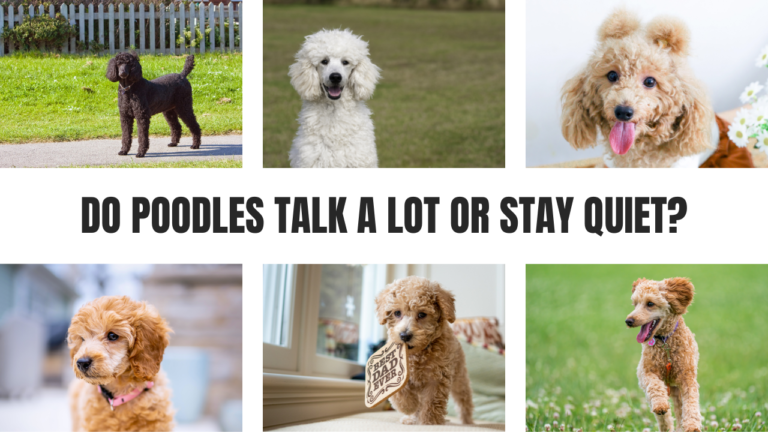Poodle Training Struggles: Why Are Poodles So Hard to Train?
Poodles are highly intelligent dogs who can sometimes be challenging to train due to their unique characteristics and temperament.
Learn why Poodles can be hard to train and how to overcome these challenges here. Poodles, whether standard, miniature, or toy, are among the most intelligent dog breeds.
Their intelligence, combined with their energetic and sensitive nature, makes them both highly trainable and sometimes stubborn.
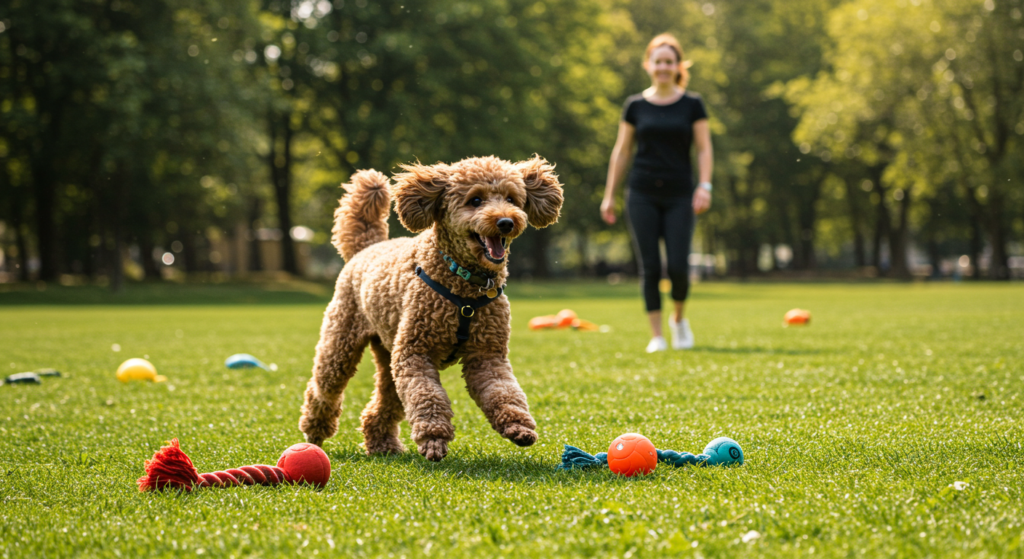
While Poodles excel in obedience training and dog sports, they also have traits that can make training difficult if not approached correctly.
These challenges are often linked to their intelligence, energy levels, social needs, and susceptibility to anxiety.
Intelligence and Stubbornness
Poodles are widely regarded as one of the most intelligent dog breeds, ranking second on the list of smartest dogs according to canine behavior experts.
This intelligence, however, can be a double-edged sword. While it makes them highly trainable, it can also lead to stubbornness and selective listening.
Poodles are quick learners, which means they easily pick up on commands, but they can also learn to manipulate their owners.
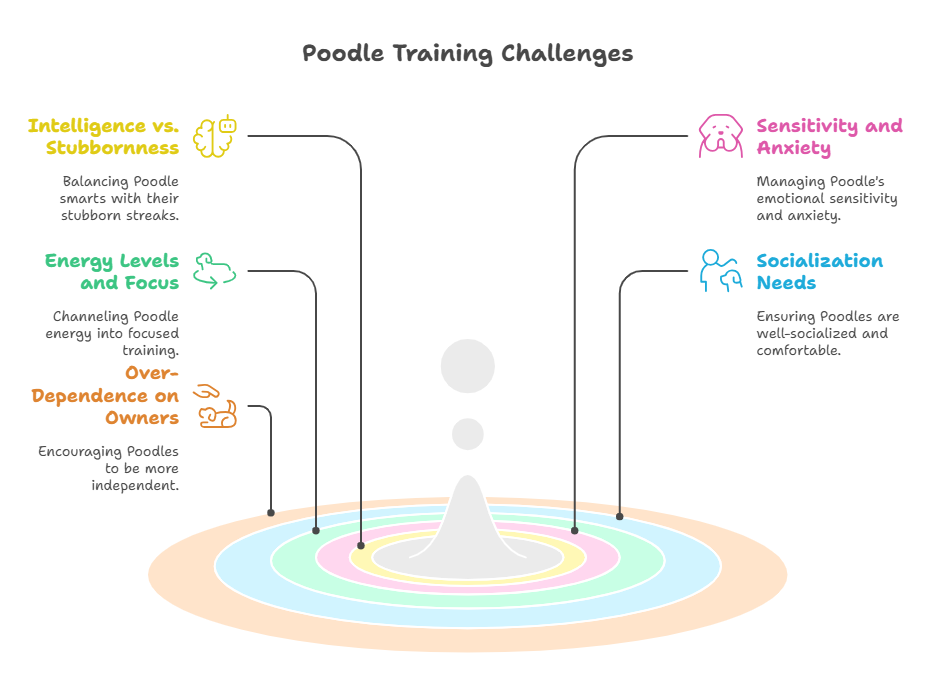
If a Poodle senses inconsistency in training, they may choose to ignore commands or develop unwanted behaviors.
This stubborn streak often frustrates inexperienced owners who may not understand how to establish clear boundaries and consistent training routines.
Additionally, highly intelligent dogs like Poodles require mental stimulation. Without engaging in activities, they may become bored and uncooperative during training sessions.
Providing mental challenges, such as puzzles and advanced obedience tasks, can help keep a Poodle engaged and motivated.
Read More = Dog Playdate Ideas
Sensitivity and Anxiety
Poodles are known for their sensitivity, which can contribute to training challenges. These dogs are highly attuned to their environment and the emotions of their owners.
While this sensitivity can make them responsive to training, it can also make them prone to anxiety and fear-based behaviors.
Anxious Poodles may struggle to focus during training sessions, especially if they are exposed to loud noises, unfamiliar people, or chaotic environments.
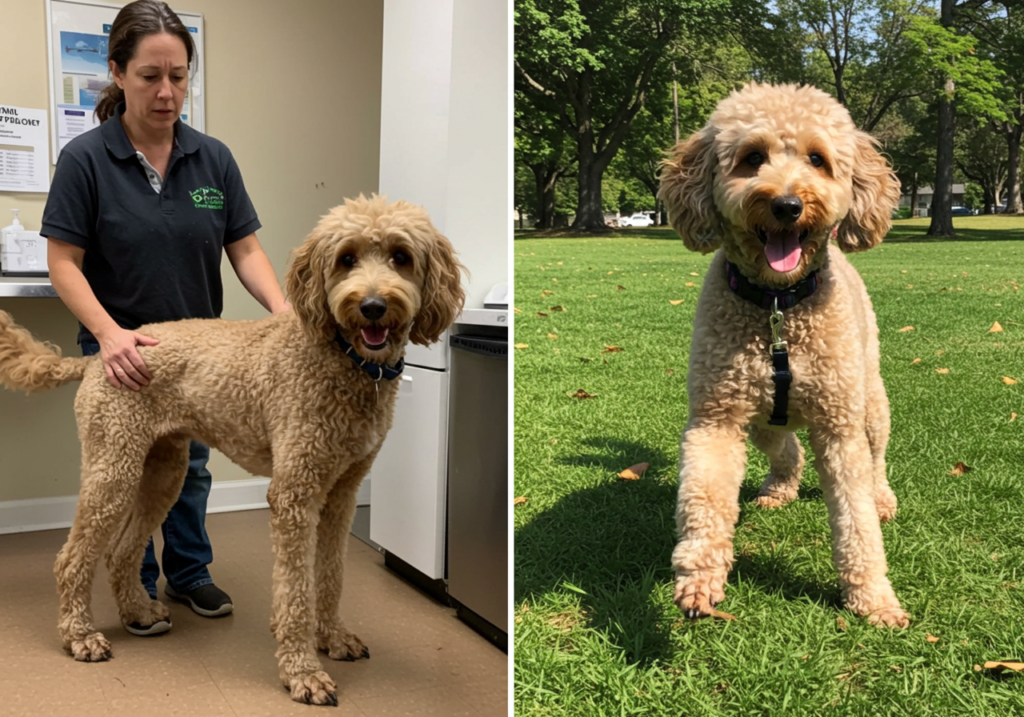
Anxiety can manifest in destructive behaviors such as chewing, barking, and soiling the house. Poodles who experience negative or harsh training methods may become fearful or resistant to training altogether.
To address this sensitivity, it’s important to use positive reinforcement techniques such as treats, praise, and playtime.
Harsh corrections or punishment can damage the bond between the owner and the Poodle, making training even more difficult.
Energy Levels and Focus
Poodles are high-energy dogs that require regular exercise and mental stimulation. When their energy needs are not met, they may become hyWhy Are Poodles So Hard to Train Hyperactive, distracted, or even destructive.
This excess energy can make training sessions challenging, as an under-exercised Poodle may struggle to stay focused.

Standard Poodles, in particular, have a high endurance level and need more exercise than their miniature or toy counterparts.
A Poodle who has not been given sufficient physical outlets may refuse to participate in training or display defiant behaviors.
Dog behaviorists recommend at least one to two hours of daily exercise, including walks, play sessions, and training games, to keep Poodles calm and attentive.
Read More = Poodle Hair Guide
Socialization and Behavioral Challenges
Socialization plays a critical role in a Poodle’s behavior and trainability. Without proper socialization, Poodles may develop fear, anxiety, or aggression, which can complicate training efforts.
This is particularly true for miniature and toy Poodles, who may be more prone to fear-based aggression due to their smaller size and sensitivity.
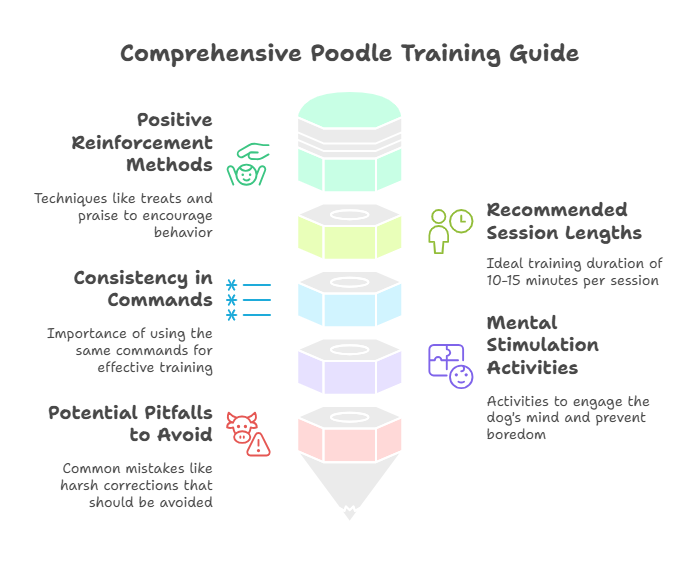
Poorly socialized Poodles may react negatively to strangers, new environments, or other animals. This fear can make training sessions stressful for both the dog and the owner.
Early and consistent socialization helps Poodles develop confidence and reduces the likelihood of fear-based behaviors.
To properly socialize a Poodle, expose them to new people, places, and experiences during puppyhood.
Adult Poodles who lack socialization may require the help of a professional trainer to address fear and anxiety issues.
Over-Dependence on Owners
Poodles are known for their strong bond with their owners, which can lead to over-dependence and separation anxiety.
A Poodle who is overly attached may struggle when left alone, resulting in destructive behaviors or excessive barking.

This dependency can also affect training, as a Poodle may refuse to work or listen when their owner is not present.
To combat over-dependence, it’s important to teach a Poodle to be comfortable spending time alone.
Gradually increasing their independence through crate training and alone-time exercises can help reduce anxiety and improve their focus during training.
Genetics and Breeding
Genetics plays a significant role in a Poodle’s temperament and trainability. Dogs bred by irresponsible breeders may inherit anxious or stubborn traits, making them harder to train.
Temperament can be passed down from parent dogs, and anxious or reactive Poodles are more likely to produce puppies with similar traits.
When selecting a Poodle, it’s crucial to choose a reputable breeder who prioritizes temperament and health. Well-bred Poodles are more likely to have even temperaments and be receptive to training.
If you already have a Poodle with behavioral challenges, working with a professional dog trainer can help address these issues.
Health Issues and Training Challenges
Certain health problems can make Poodles harder to train.
For example, thyroid disorders, hormonal imbalances, and hearing or vision impairments can affect a Poodle’s behavior and ability to learn.
A Poodle experiencing pain or discomfort may appear uncooperative or defiant during training sessions.
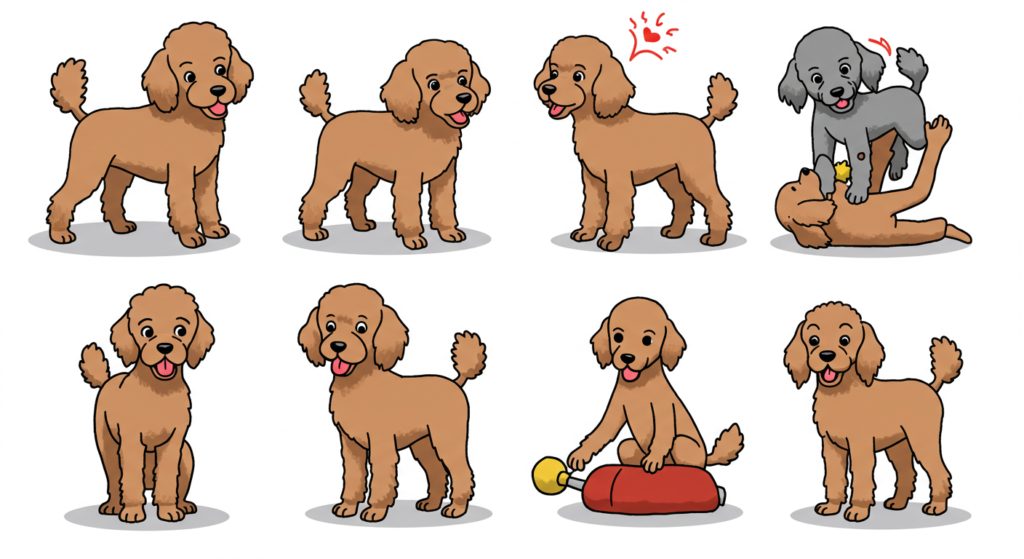
Regular veterinary check-ups are essential to rule out any underlying health issues that may impact training.
If a Poodle suddenly becomes difficult to train or displays unusual behaviors, it’s important to consult a veterinarian for a thorough evaluation.
Effective Training Techniques for Poodles
To overcome the challenges of training a Poodle, it’s important to use the right techniques. Positive reinforcement is the most effective training method for Poodles.
Rewarding desired behaviors with treats, praise, and play encourages Poodles to repeat those behaviors.
Here are some tips for training Poodles effectively:
- Keep training sessions short: Poodles have short attention spans, so limit training to 10-15 minutes per session.
- Be consistent: Use the same commands and rewards to avoid confusion.
- Provide mental stimulation: Incorporate puzzles, tricks, and advanced tasks to keep Poodles engaged.
- Avoid harsh corrections: Use gentle, positive methods to build trust and confidence.
- Exercise before training: A well-exercised Poodle is more likely to focus and respond to commands.
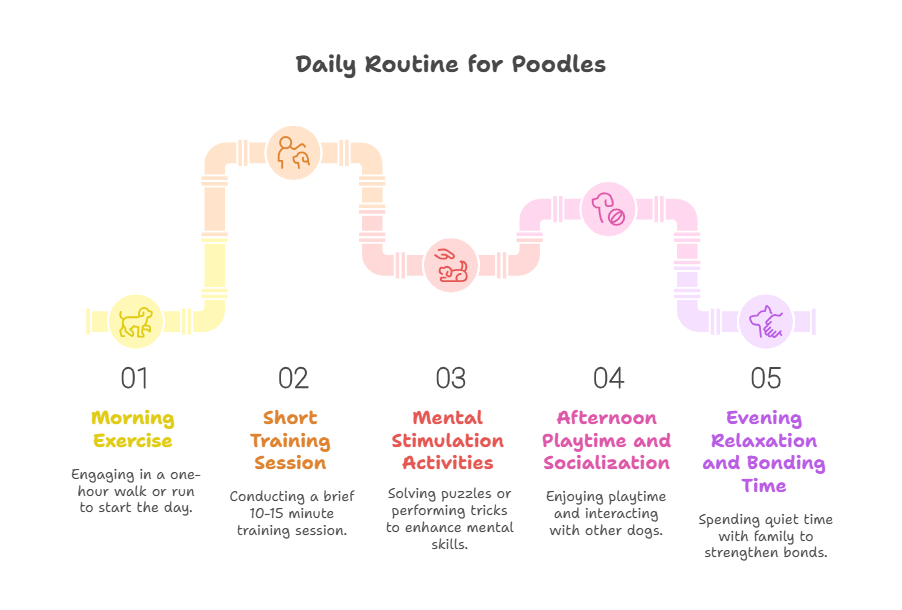
Frequently Asked Questions
Are Poodles difficult to train?
Poodles are highly intelligent and trainable dogs, but their stubborn streak and sensitivity can make training challenging for inexperienced owners.
Consistency, positive reinforcement, and mental stimulation are key.
Why does my Poodle ignore commands?
Poodles may ignore commands if they are bored, under-exercised, or sense inconsistency in training. Providing mental challenges and being consistent with commands can help improve their responsiveness.
Do Poodles get separation anxiety?
Yes, Poodles are prone to separation anxiety due to their strong bond with their owners. Gradual independence training can help reduce anxiety.
How can I make training more effective for my Poodle?
Use positive reinforcement techniques, keep sessions short, and ensure your Poodle receives plenty of exercise and mental stimulation. Avoid harsh corrections, as Poodles respond best to gentle, consistent training methods.
Are smaller Poodles harder to train than larger ones?
Miniature and toy Poodles may be more prone to fear-based behaviors due to their size, but all Poodles can be successfully trained with the right approach and consistency.
Final Words
Poodles are intelligent, energetic, and sensitive dogs who can be both a joy and a challenge to train.
Their intelligence can lead to stubbornness, and their sensitivity can make them prone to anxiety and fear-based behaviors.
However, with consistent positive reinforcement, proper exercise, and early socialization, Poodles can excel in training and become well-behaved companions.
Understanding their unique needs and temperament is key to overcoming training challenges and building a strong bond with your Poodle.






